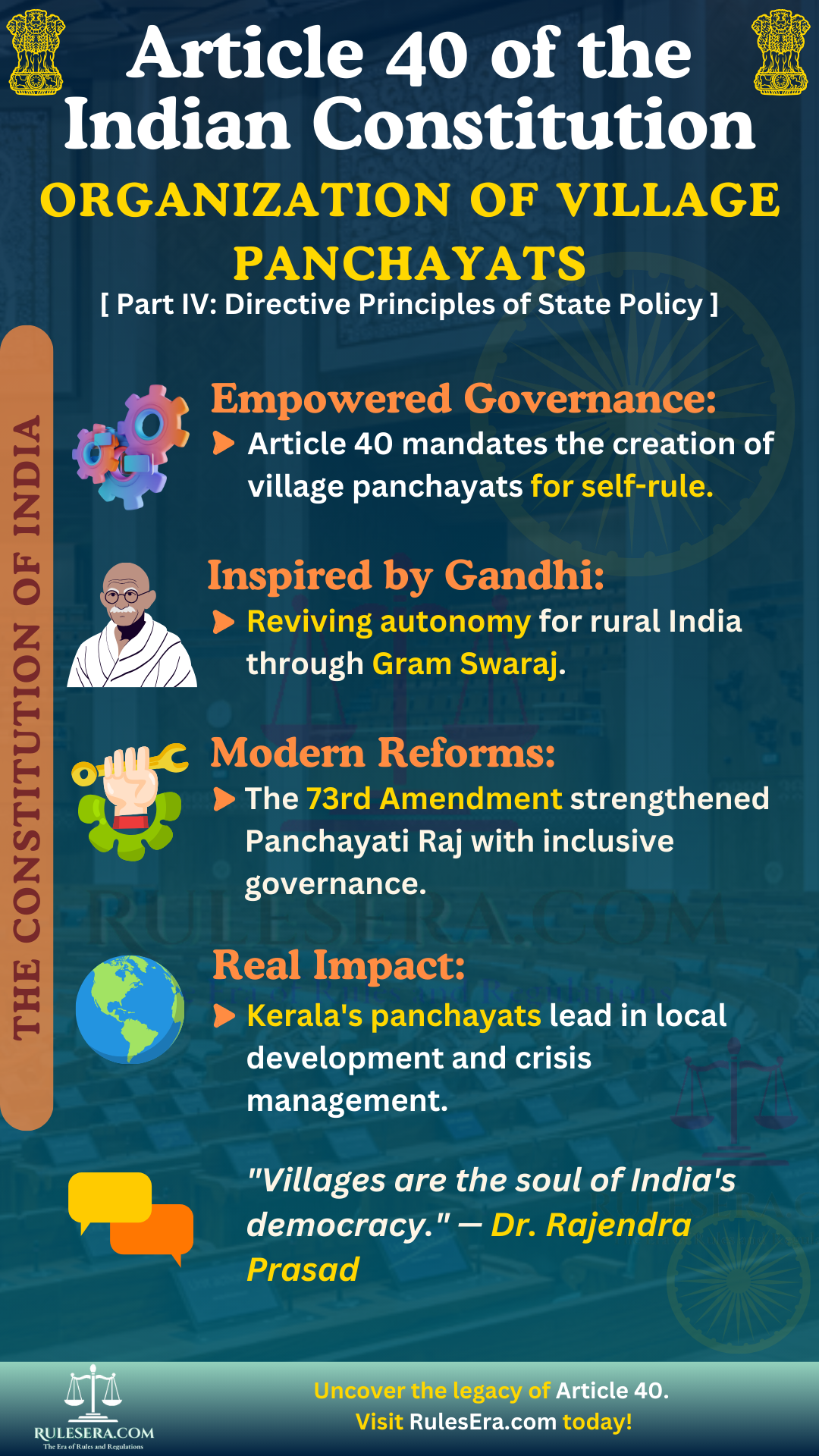Part IV: Directive Principles of State Policy
Article 40: Organization of village panchayats

--- Original Article ---
The State shall take steps to organise village panchayats and endow them with such powers and authority as may be necessary to enable them to function as units of self-government.
Explanation
Article 40 outlines the framework for establishing village panchayats as units of self-governance. The article emphasizes the State's role in organizing and empowering these local institutions to promote decentralized governance and grassroots participation in decision-making.
Role of the State in Organizing Panchayats
Article 40 places a direct responsibility on the State to organize village panchayats and delegate administrative and governance powers to the village level. This is intended to promote participatory democracy and self-governance.
Empowering Panchayats with Necessary Powers
The article requires the State to provide village panchayats with the necessary legal, administrative, and financial autonomy to function effectively. This ensures that panchayats have the capacity to address local needs and foster sustainable development.
Historical Significance
The concept of local self-governance in India has deep historical roots. Mahatma Gandhi envisioned Gram Swaraj—self-reliant villages as the cornerstone of India’s democratic structure. Article 40, based on this vision, aimed to restore the traditional autonomy of villages lost during British rule.
Amendments and Real-Life Example
The 73rd Constitutional Amendment Act, 1992 gave effect to the principles of Article 40 by institutionalizing the Panchayati Raj system. The Kerala model of Panchayati Raj is an example of how empowered local bodies can effectively manage resources and promote local governance.
Legislative History
Article 40 was originally introduced and debated as Article 31A of the Draft Constitution on November 22, 1948, before being incorporated into the Constitution.
Debates and Deliberations
Shri Santhanam proposed adding Article 31A (later renumbered as Article 40) to ensure the State's role in organizing village panchayats. Shri T. Prakasam and Dr. Rajendra Prasad supported this vision, referencing Mahatma Gandhi's advocacy for decentralized governance through village republics. Seth Govind Das provided historical context, noting the importance of village panchayats in India’s ancient governance system.
Frequently Asked Questions (FAQs):
It emphasizes the State’s responsibility to organize and empower village panchayats as units of self-government.
It was implemented through the 73rd Constitutional Amendment, which institutionalized the Panchayati Raj system across India.